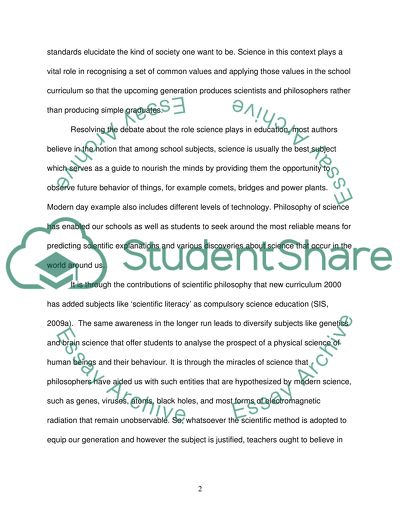Science in an Educational Context Essay Example | Topics and Well Written Essays - 4000 words. Retrieved from https://studentshare.org/miscellaneous/1515589-science-in-an-educational-context
Science in an Educational Context Essay Example | Topics and Well Written Essays - 4000 Words. https://studentshare.org/miscellaneous/1515589-science-in-an-educational-context.


